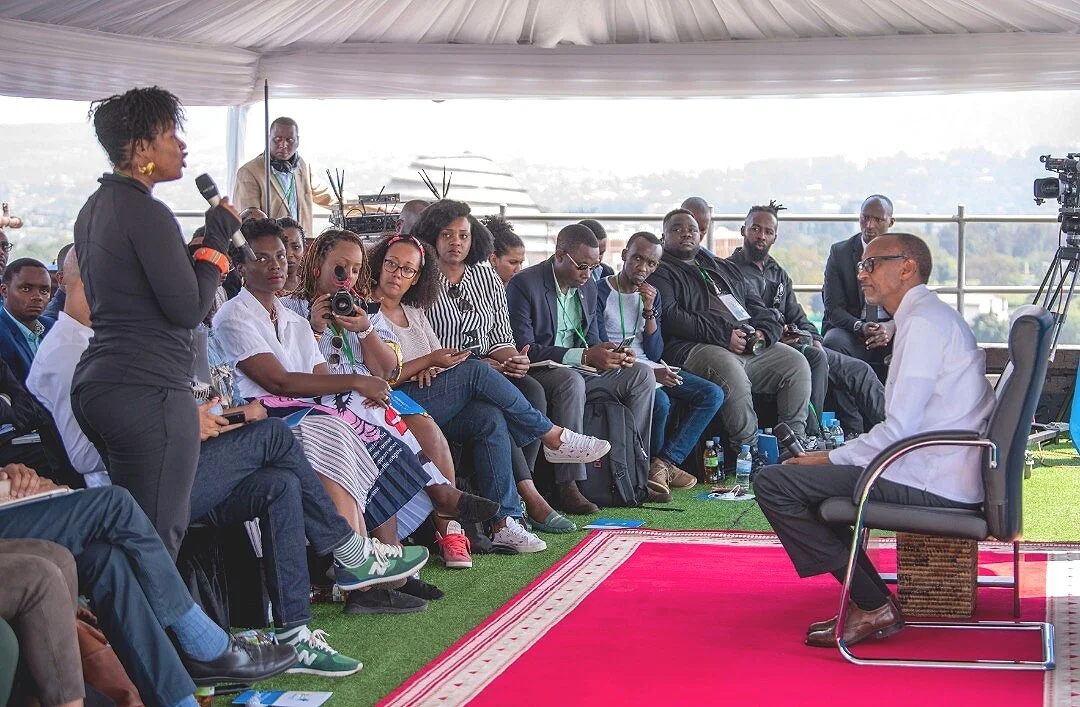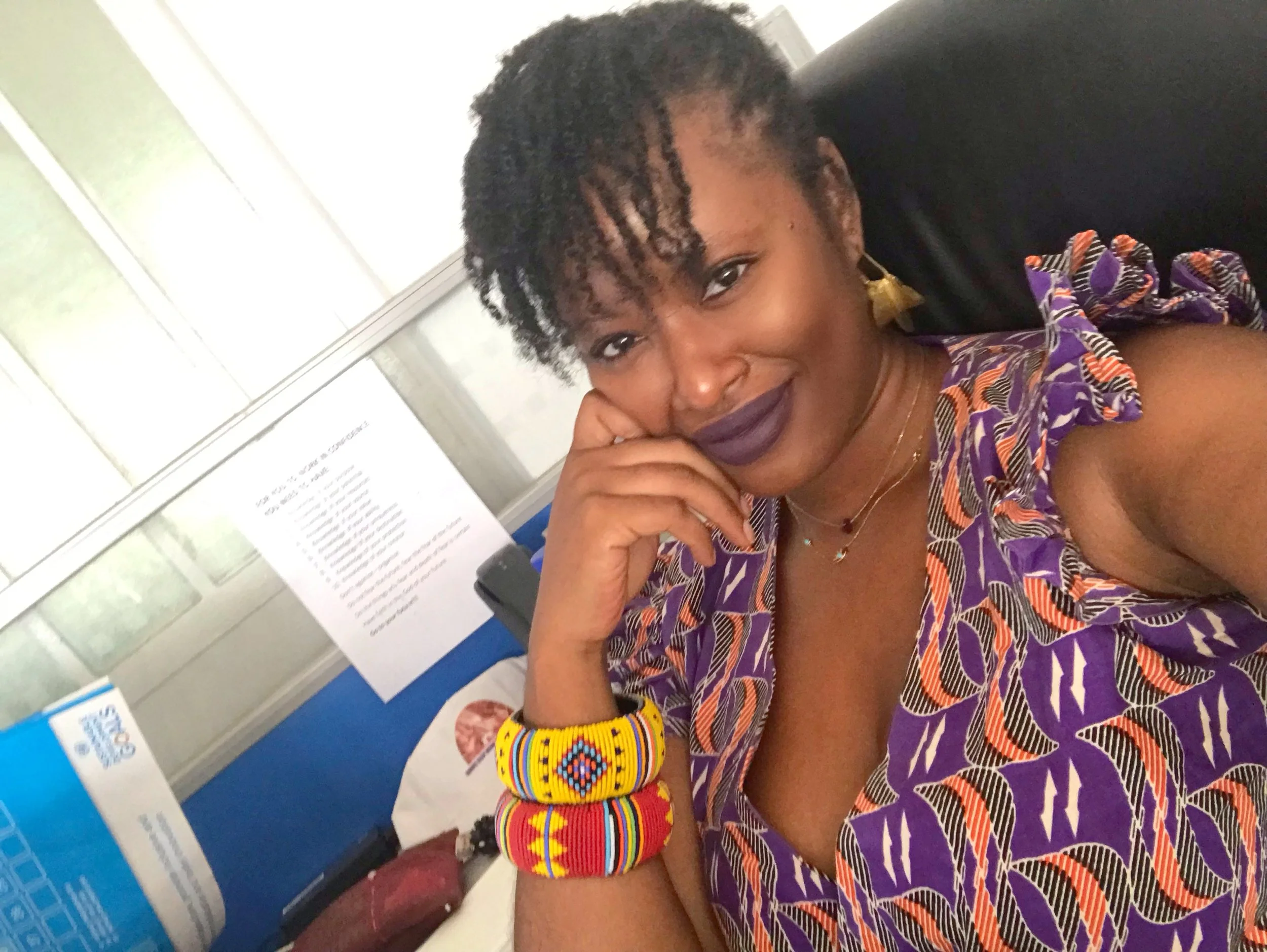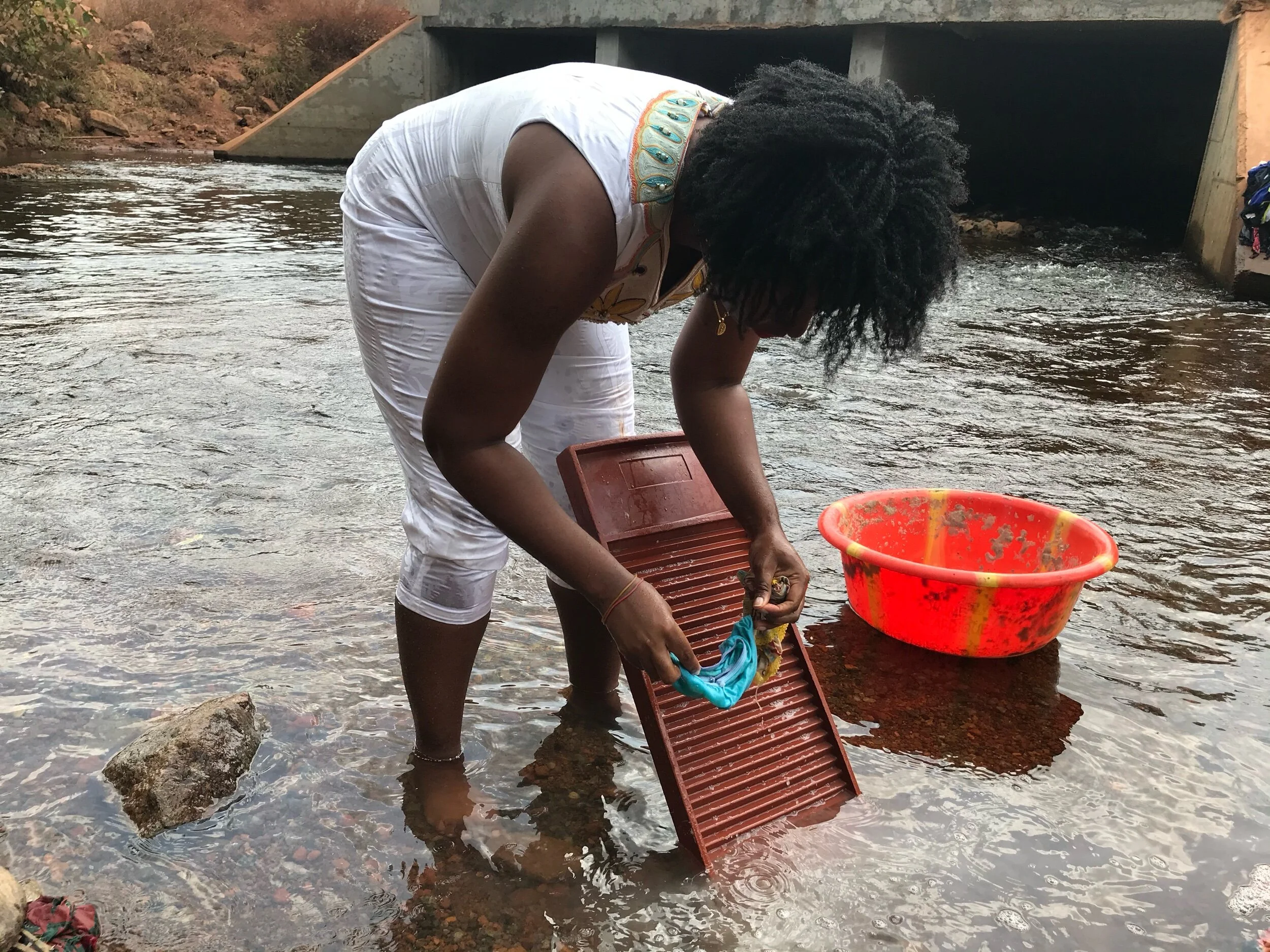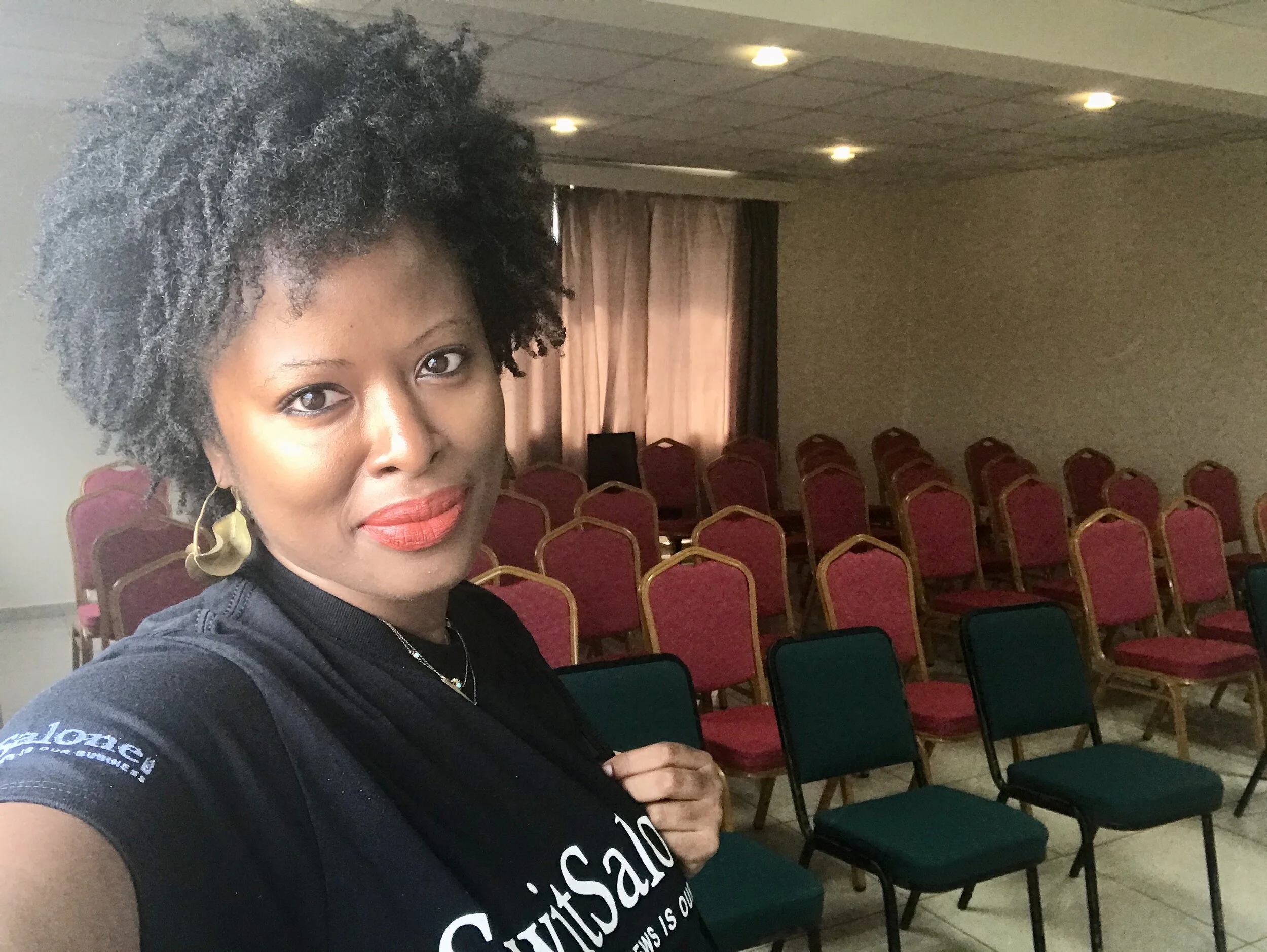This is the secret behind Rwanda’s success that Africa needs to know
What is the What of Rwanda?
I came to Rwanda, looking for answers. For much of the 1990s, Sierra Leone and Rwanda were two sides of the same coin; two sides of the same tragic story of civil war. In the aftermath of both wars, Sierra Leone and Rwanda accounted for the two largest peacekeeping missions on the continent that decade. Today Rwanda has emerged out front in a league of its own making, while Sierra Leone is still trying to find its way.
So I came to Rwanda trying to understand the secret to their post-war success. Why has Rwanda been able to maintain an average growth rate of 8% over the last decade. How is it that Rwanda has the most gender-inclusive government in the world. How come Rwanda is rated as the second best place to do business in Africa, and one of the top 10 global reformers in the world? How is it that Rwanda has been able to emerge as a global leader and a point of reference for good African leadership while Sierra Leone is at the other spectrum, not far moved from where it was 18 years ago when our decade-long civil war ended.
When I got the email from, Stephanie (President Kagame's 32-year-old Director of Communications) inviting me to join Rwandans to celebrate #Kwibohora25, the 25th anniversary of the end of the genocide, that took place here in 1994, I was dumbfounded. When did African presidents start to respect indigenous digital storytellers? Like how is this even possible? As soon as I arrived in Rwanda, it was clear why. The entire cadre of President Kagame's communications and protocol team are Rwandese under the age of 45. Of course! If you have young people in the room calling the shots and making the decisions naturally, they are going to empower other young people. No brainer!
Long before I received the invitation, I had more than once used the hashtag #RwandaIsWakanda. Most recently it was when I read that Rwanda launched a satellite to give internet access and connectivity to students in remote areas of the country. In my eyes, that was futuristic black excellence and Wakanda-like.
So I came to Rwanda with an already idealized and romanticized lens. When a country trends repeatedly for accomplishing Sustainable Development Goals (SDGs) or making progress towards education, reducing poverty to under 40% in 20 years; if you're an African, especially in the diaspora you start to pay attention. And as a citizen of a post-war country like Sierra Leone, you're left wondering...wait didn't we all just have a war? Don't we all have the same post war traumas? The death toll in the four months after then-President Habyarimana's plane crashed in 1994 was 3x that of Sierra Leone in 10 years. The highest estimate of our civil war put the death toll at 300,000 from 1991-2001. In Rwanda, a million people were killed in 100 days. How then did Rwanda leave us behind so quickly?
When I got to Kigali on the eve of Kwibohora (Liberation Day), I was informed that we would be having a conversation with President Kagame. I assumed it was going to be in a big room with lots of people sitting classroom style with him standing at a podium. Instead, it was quite the opposite.
There were two rows of chairs with 20 seats each on a red carpet facing a backdrop, and a chair facing us, reserved for the President. It was way more intimate than I was prepared for.
I sat in the front row directly facing President Kagame, and I participated in a conversation both about Rwanda, and Africa as a whole. From the questions I could tell that like me, most of those who had come to Kigali also sought to understand the "what of Rwanda" to help us solve our own national realities.
Leadership matters but it's not everything
My question to President Kagame was about national cohesion I wanted to understand what Rwanda had done; the programs that had been implemented to get citizens united around the vision of a better Rwanda for all. In his response, President Kagame highlighted the following; leadership, communication, sacrifice, and results.
"We've learned from our tragic history, that when bad things happen to you, you have two ways to work: you can live broken and therefore do nothing and just keep surviving or you can find another way," said President Kagame.
"You can be hardened by the lessons, but you have to say let me look within myself to find some sense of purpose, to move on and do better, be better."
President Kagame said that leadership does matter. If there is a problem, it is on the leadership to fix this problem, but first leaders must ask a fundamental question of themselves.
"What is it that you need to be communicating to the people, so that they understand that if they want to move in a different direction, they need to not only be thinking differently but doing things differently," he said.
"So that falls on the shoulders of leaders to keep saying, you know, this is what we did that created problems for us. It is from that understanding that I want us to move in the opposite direction."
President Kagame said that people will follow your vision if your messaging is consistent but for sustainable national change and transformation leaders have to perform.
"You've got to do something. You can't just believe in a world of dreams, you must do something. And that something you do, will give certain results. When people start experiencing a change in their lives, you say these are the aspirations I was talking about earlier, getting closer, and closer moving in the right direction."
As I left the conversation with President Kagame, his answers left me with a better understanding, but it didn't quite answer the "what of Rwanda." While leadership definitely makes sense, I was left wondering but what if we don't have the right leaders? How does the leadership at the Presidency directly affect the way the person on the street behaves?
The following day we were supposed to go to the launch of a new housing community for the less privileged built by the government. Sadly, I could not go. The airline had still not located my missing suitcase. I decided instead that I would go to town to find clothes for which my host provided a guide. I got into the car, and it was the first time since being in Rwanda, in the capital city of Kigali that I had an opportunity to just focus on looking outside of the window.
Kigali is as green as can be. It is neat, spotless, and orderly. Large bus stops with shade, no queues for public buses, no pure water sachets on the streets, no open gutters, all buildings under construction neatly fenced, and not a single person holding a single-use plastic bag.
I also did not see any ostentatious manifestations of wealth, also known as fancy cars. If I was in Freetown, Accra or Victoria Island by now, I should have counted Range Rovers galore. I mean there are cars, nice cars, but I didn't see the Prados, and gas guzzlers that line our streets.
The people on the streets didn't look rich but the city, the country looks wealthy.
I noticed many motorbikes (okadas) as we call them back home. First of all, the riders all had on helmets. Most of the helmets I saw, 95% were red. I asked Brenda, who was helping me around how come this uniformity.
She said that the phone company Airtel sponsored the helmets and reflector vests for each rider. On the back of each vest, the brand and a unique number for each driver as a reference should anything happen. It was so simple and yet so genius. In addition to the helmets, I noticed the drivers looked especially neatly dressed. To me, they looked like they were headed to office jobs. I asked Brenda why they were all dressed like they are going to work in an office. She responded matter of factly.
"They take pride in what they do, they're going to their office."
Back in Sierra Leone, the okada riders are intimidating. The majority of them drive rough and reckless. A medical doctor at Connaught recently told me that 80% of all emergency cases at the largest government hospital in Freetown are victims of okada accidents. People use them in Sierra Leone mostly for necessity, but I have never been on one in Freetown because they scare me. And yet here in Kigali I could see myself getting on a moto. Like, why not? The okada is an office to the okada rider.
When we got into town we walked on a street just for pedestrians--no cars allowed. I clutched my heart, it was love at first step. I had joked about how Freetown needed to have car-free zones in town, and someone had laughed when I said it but here I was in Kigali, and it had been done.
We went to the shops. We must have gone into six or seven shops. I didn't buy anything, but each shop we left the trader said thank you to me with genuine warmth. They thank you before leaving a shop on this African continent? The one in which people always complain that we don't know customer service?
There was something about the way people spoke to me, the interactions I observed, the motor riders, the people on the street, Brenda my guide, her friends we met around town, all of them had a certain air of noblesse m' oblige.
Agaciro - Dignity is the what of Rwanda
It wasn't long before it came to me. What is it about the people in Rwanda? It is dignity! I said to Brenda; you know what, you guys have so much dignity. It is in everyone.
"Agaciro! (aga-chi-row), that is what the President talks about all the time. That is what he tells the people. That we must claim our dignity."
"Oh My God! That is what! Brenda that is what you have that we lost. You have dignity!"
This is the answer that I had come to look for. Dignity is the everything of Rwanda. That is what binds everything together. The people have self-respect, people know their self-worth. And because of their sense of dignity, discipline then comes from within. Integrity becomes second nature.
When you have dignity, and you're an okada rider, you wear a helmet, you wear a vest, and you drive differently. You dress differently, and you communicate differently. When you're a shop owner, and you have dignity, you thank customers when they leave your shop, even if they don't purchase anything from you. We went into shops where we asked for something, and the salesperson said they didn't have and the next moment they were locking their shop to walk us to the right place. When you have dignity, the second-hand clothes you buy and sell are not on the floor on the side of the road but in a boutique in a shopping center. Everybody I saw and interacted with demonstrated a clear sense of dignity and self-respect.
In the years since the genocide ended, the message has been dignity for all. This has been the message that the government has sold as the Rwandan dream, not money and flash but dignity. All citizens of Rwanda have a right to dignity.
Before Rwanda could become what it is today, President Kagame said it had first to rebuild its social fabric. This is what they have been doing for the past 25 years.
Sierra Leoneans got truth and reconciliation but no dignity
When Sierra Leone's war ended in 2002, there was a Truth and Reconciliation Commission (TRC) and a UN-backed Special Court funded by the international community. When they were happy with themselves and felt they had checked off all the boxes, they packed up and left, and Charles Taylor went to jail.
The TRC brought a lot of the atrocities of Sierra Leone's Civil War to the fore, but it did not help us reclaim our dignity, nor our national identity. It left us raw and wounded. We have moved on, but we have never gotten our pride back.
Rwanda's civil war was fueled by ethnic tensions, so perhaps it was evident that a vital component of the post-war rebuilding effort had to be around redefining and creating a national identity.
Before the 1994 Genocide, the Belgian colonial powers had laid the framework for the first three of the ten stages of genocide -- classification, symbolization, and discrimination. The Hutu-led government up to 1994 and its Interahamwe escalated to stage four of genocide when they dehumanized the Tutsis. In the same way that Hitler's Nazi Germany took away the humanity of Jewish people and massacred them so too did the Hutu-led government to the Tutsis. Once the Tutsis had been dehumanized and classed as "cockroaches," mass extermination planned and orchestrated by the government began. All human rights violations from genocide to slavery are first justified by dehumanization.
While Sierra Leone's civil conflict was not ethnic in nature, for ten years all Sierra Leoneans of all ethnicities, of all ages, of all genders, of all regions were dehumanized. Children were dehumanized when they were made into soldiers, drugged, and forced to kill. Girls and women dehumanized by rape. Men self-dehumanized as they murdered, looted and raped. Even those who fled to the diaspora were dehumanized by the act of needing to seek refuge in foreign countries.
In 1997 I was 12 years old when we fled to Conakry to get away from the war. There were hundreds of other Sierra Leonean refugees there living in squalor. Finding water to wash in the morning, and bathing outside, and sleeping with strangers on the ground, all of it was dehumanizing. It is because of this that I erased that part of my childhood from my story. I'm saying it here now because I finally understand why I hate talking about the war. I hate when I meet foreigners, and I say I'm from Sierra Leone and the first thing they reference is the war. I hate when foreign media reporting on Sierra Leone use the war as a point of reference when their story has nothing to do with the conflict. All of it reminds me of that time as a child when the war tried to rob me of dignity, and the moments of my childhood when the war took my dignity.
In a state of self-dehumanization
In the 20 years since the signing of the Lomé Peace Accord the majority of Sierra Leoneans have been living like a people without dignity, in a state of self-dehumanization.
Self-dehumanization is the state of seeing oneself as less than human because of one's own transgressions. And research has found that the more transgressions one commits, the more we dehumanize ourselves, and the more wrong things we do. In short, doing the wrong things, makes us see ourselves as less than human, and seeing ourselves in that way makes us do more of the wrong thing.
Over the past two decades in Sierra Leone, it is as though the right has become wrong, and wrong has become right. We idolize politicians who enrich themselves from government coffers. We embrace those businessmen who get illicit government contracts even at 300% of the market price. It is at those times that I know that Sierra Leoneans, for the most part, do not believe that we deserve better, we have dehumanized ourselves.
One of the first things you notice in Kigali city is its cleanliness. I asked President Kagame whether everyone just woke up one day and said, let us clean. He said it didn't happen that way.
Rwandans wake up early in the morning to clean their homesteads. This has always been the case in the villages, but it didn't translate into urban culture. He said that the government made a decision to turn something positive from within the culture into a national policy. And now even the poorest citizens and households live in clean, dignified communities.
Sierra Leoneans also had and in some places still have this culture of waking up to clean our homes every morning. Last time I was in Bo Town, Sierra Leone's second city, I could hear the sound of brooms sweeping the earth before daybreak. In spite of this existing in our culture, the capital city Freetown still has dirty streets. Whether we are riding in poda-podas or Prados, we drink and eat and throw our litter on the road. Pedestrians on the street throw their garbage in open gutters and roadside, sometimes leaving the litter right next to empty Freetown City Council bins.
Unlike Rwanda, where cleaning is a daily exercise, in Sierra Leone, the policy is for a monthly clean up. In between the cleanup people litter because either they don't care or they don't understand the relationship between those actions and the quality of their lives. If it's already dirty, why not add more dirt, we will clean it on Cleaning Day seems to be the prevailing mentality.
In Rwanda I saw no one holding plastic bags on the street, when you go shopping, you're handed a brown paper bag or a reusable bag. I did not see any pure water plastic bags here. But Rwanda was not always like this.
There was an intentional decision made to embrace values that ensure and reinforce that the country is clean and tidy. That work started with rebuilding a collective identity around the right to dignity and the responsibilities that come with that right.
Rwanda's magic
So I came to Rwanda looking for magic. I had thought that maybe it is Paul Kagame. Perhaps he is just extraordinary, but that's not my take away.
Leadership matters but the answer is even more straightforward than that. Rwanda is emerging as a model because post-1994 the country was rebuilt on the universal idea that everyone has a right to dignity, and that dignity exists within each one.
When you have a nation of people, who know that dignity is a birthright, you can unify them to build and transform society.
My visit to Rwanda has been both enlightening and empowering. What has been done here can be achieved anywhere, including in post-war countries like Sierra Leone, and Liberia. What we lack is not money.
Some 39% of Rwandans live in poverty down from 74% in 1996. Like Sierra Leone, an estimated 63% of Rwanda's population live on less than $1.25 a day according to the World Bank. Rwanda's per capita income is 2x that of Sierra Leone, but it is less than Guinea, Ghana, Nigeria. If you look at the map of the capital city of Kigali, you can see that almost half of the city lives in poverty. However, walking around talking to people and looking at the lushly green streets, a clean environment, and the dignity with which citizens carry themselves, you would not guess it is not a middle-income country.
It is that they found the right message to communicate to the people, and they reinforce that message across all spheres of their society. There is a general understanding and acceptance that Rwandan prosperity is the nation's mission, sacrifices must and will be made.
Rwanda's sacrifice
I will be remiss if I do not discuss the elephant in the room. Rwanda is a model for progress and peace, but there is also what we have read in the news. Since I've been here, a couple people have privately sent messages to ask me what I think of President Kagame, am I not aware of the stories. They are referring to news reports on dissent, and democracy in Rwanda.
In 2015 a national referendum changed the constitution by removing Presidential term limits. This is how come after serving as President for two seven-year terms President Kagame was able to seek re-election in 2017. He can contest until 2034.
In the past three elections, President Kagame has won over 90% of the votes. In the last election, he won 98% of the votes. These high numbers are unusual in traditional liberal democracies.
I've been here less than a week, meaning I can not in any way be in a position to know or understand Rwanda, let alone speak on President Kagame.
However, my impression of President Kagame over this week is that he is committed to a vision. That vision is that Rwanda must be a prosperous nation by any means necessary, and he will not let anything stop him from accomplishing that goal. In fact, he says that anyone seeking to remove him must be willing to fight for it. That is what he said at our conversation at the top of the parliament of Rwanda overlooking the hills of Kigali.
If Rwandans want to choose a different path to prosperity, they have the tools to do so.
Lessons for Sierra Leone - Ubuntu
Last year, Sierra Leoneans voted for a new government. While the peaceful transition of power is always a milestone to be celebrated in any democracy that alone is not an indicator of progress or national transformation. If the what of Rwanda that has allowed it to emerge as a model for sustainable development is dignity, what is the what of Sierra Leone? All of the work against corruption, and investments in human capital development, will leave us no better than we are today if we can not find our reason for being. We have collectively endured decades of dehumanization and self dehumanization. We have to forgive ourselves and move towards a different path.
To get there -- in the right direction, we need to find a message to communicate to our people that will define and create a new national identity, where none currently exists. We need one underlying message, a raison d'etre in which all Sierra Leoneans can believe. A raison d'etre to be a proud Sierra Leonean.
The message is simple:
Every Sierra Leonean has a right to live a dignified life. Dignity is an inalienable right. We deserve better, and we must not rest until every citizen gets there.
The moment we come to the realization that we deserve better, when we recognize that dignity is in us, that is where change begins. We will start to demand better from our leaders but most importantly ourselves. That is when national transformation begins.





